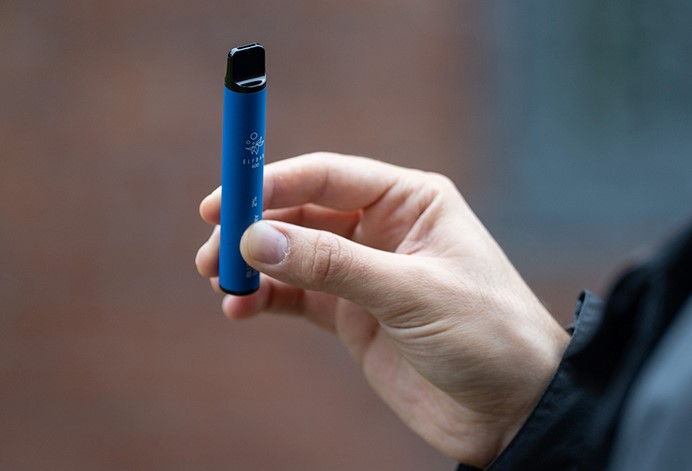Scientist Urges Caution With AI Vaping Studies
Scientists should be aware of the "illusions of understanding" when relying on artificial intelligence for their research, warned Marina Murphy, industry veteran and scientific adviser to the U.K. Vaping Industry Association.
A recent study, published in Scientific Reports, claims to have uncovered potentially harmful substances that are produced when e-liquids in vaping devices are heated for inhalation.
The research team at the Royal College of Surgeons in Ireland (RCSI) University of Medicine and Health Sciences, Dublin, used artificial intelligence to simulate the effects of heating e-liquid flavor chemicals found in nicotine vapes.

The analysis revealed the formation of many hazardous chemicals, including 127 that are classified as "acute toxic," 153 as "health hazards" and 225 as "irritants." Notably, these included a group of chemicals called volatile carbonyls (VCs), which are known to pose health risks. Sources for VCs were predicted to be the most popular fruit-flavored, candy-flavored and dessert-flavored products.
Lead author Donal O'Shea, professor of chemistry and head of the department, said the findings are concerning. "Our findings indicate a significantly different profile of chemical hazards compared to what we are familiar with from traditional tobacco smoking. It is plausible that we are on the cusp of a new wave of chronic diseases that will emerge 15 [years] to 20 years from now due to these exposures."
Murphy countered that the effects of overheating e-liquids have been studied extensively. "This can lead to the production of carbonyls, for example, but these compounds make the vapor so caustic as to be un-inhalable," she wrote in response to the RCSI study. "Newer e-cigarette devices are designed with built-in temperature control systems."
She warned that "scary headlines" could prompt smokers thinking of switching to less harmful e-cigarettes to stick with conventional cigarettes instead.
"Vaping has proven to be the most popular quit aid, and we need to focus less on problems and more on solutions to ensure that vapers continue to get the flavors they need to successfully quit cigarettes in the safest way possible," said Murphy.
https://tobaccoreporter.com/2024/05/09/scientist-urges-caution-with-ai-vaping-studies/
电子雾化与HNB产品都是新型电子产品,结构虽小,却融合应用多种材料、表面处理、芯片电子等技术工艺,而且雾化技术一直在不断更迭,供应链在逐步完善,为了促进供应链企业间有一个良好的对接交流,艾邦搭建产业微信群交流平台,欢迎加入;Vape e-cigarettes (VAPE) and Heat-Not-Burn e-cigarettes (HNB) are both emerging electronic products. Despite their compact size, they integrate various materials, surface treatment technologies, chip electronics, and other advanced technical processes. Moreover, atomization technology is constantly evolving and the supply chain is being progressively perfected. To facilitate good communication and networking among supply chain enterprises, Aibang has established an industry WeChat group communication platform and warmly welcomes interested enterprises to join.

